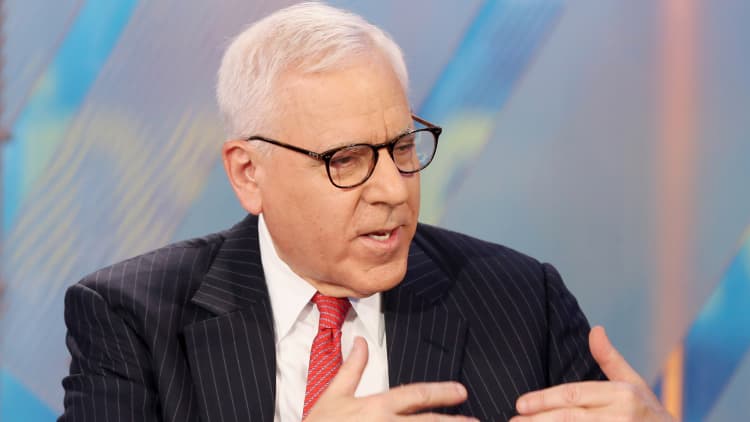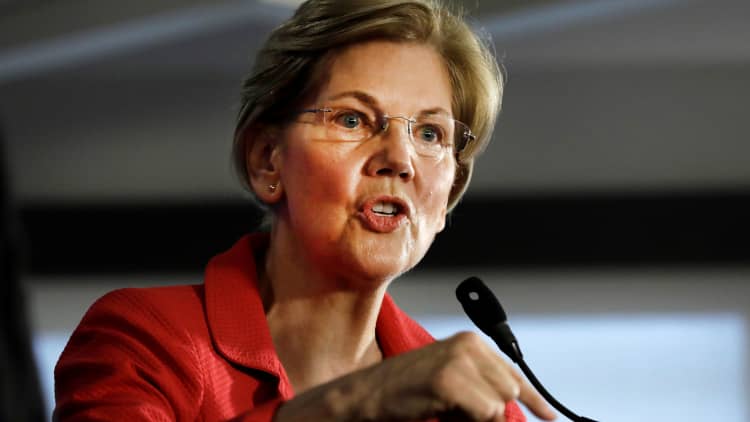
Democratic presidential candidate Sen. Elizabeth Warren's wealth tax would not generate enough money to make a dent in income inequality, said David Rubenstein, the billionaire co-founder of private equity powerhouse The Carlyle Group.
"I don't think all of a sudden a wealth tax, for example, would solve all of our society's problems, if one could ever actually be implemented," Rubenstein told CNBC's Leslie Picker on Tuesday from the Greenwich Economic Forum.
"If you tax the upper income, there aren't enough of those people to really make a wealth distribution effect that's going to be significant. There just aren't enough highly wealthy people," he added.
The Warren campaign was not immediately available to respond to CNBC's request for comment on Rubenstein's remarks.
The progressive Warren — running second in the Real Clear Politics national polling average — is proposing a 2% tax on household net worth above $50 million and a 6% tax on net worth over $1 billion. That, along with changing how investment gains are taxed for the top 1 percent of households, would generate more than $3 trillion over 10 years according to analysis from the New York Times.
Sen. Bernie Sanders, a democratic socialist, also supports a wealth tax. Joe Biden, the centrist former vice president who remains the frontrunner, has vowed to repeal tax cuts for the wealthy but has not called for a wealth tax.

Rubenstein, a major philanthropist, is one of the signatories to the Giving Pledge, which was created by Bill Gates and his wife Melinda Gates and Warren Buffett to get the ultra-wealthy to give away more than half of their fortunes to charity. Rubenstein, for example, matched federal funding of $7.5 million to expedite the renovation of the Washington Monument after damage from a rare D.C.-area quake in August 2011.
Billionaire investor Leon Cooperman, tearing up in a Monday interview on CNBC talking about the political divide and the American Dream, cited Rubenstein in his argument against the policies of Warren.
"I don't need Elizabeth Warren telling me that I'm a deadbeat and that billionaires are deadbeats. The vilification of billionaires makes no sense to me. The world is a substantially better place because of Bill Gates, Michael Bloomberg, David Rubenstein, Bernie Marcus, Ken Langone," Cooperman said, echoing an argument he made in a letter to the Massachusetts senator last week, in which he praised the philanthropic efforts of some of the aforementioned business luminaries.
Reacting to Cooperman's comments, Rubenstein said, "He's a very smart man," but added, "taxes are a different issue than philanthropy." The Carlyle Group co-executive chairman acknowledged, "Taxes in the United States are not completely fair for anyone," but reiterated that a wealth tax is not the answer.
Earlier in his career, Rubenstein donated to both Democratic and Republican candidates and causes. But he has not made a political contribution in more than a decade.



